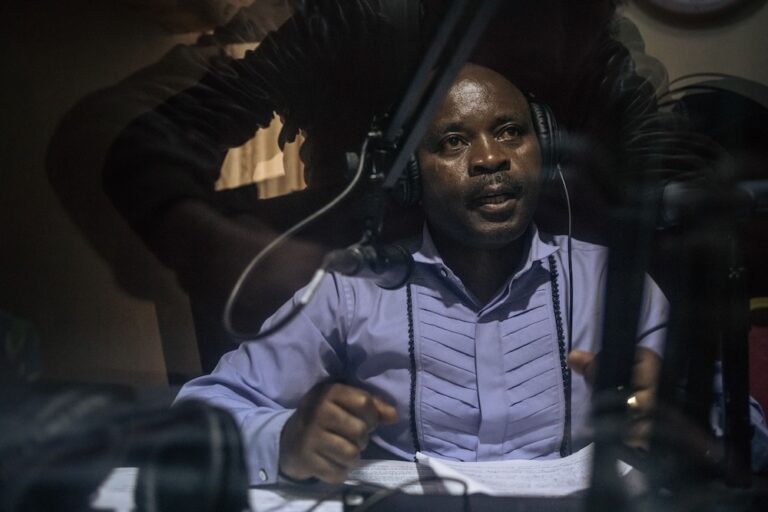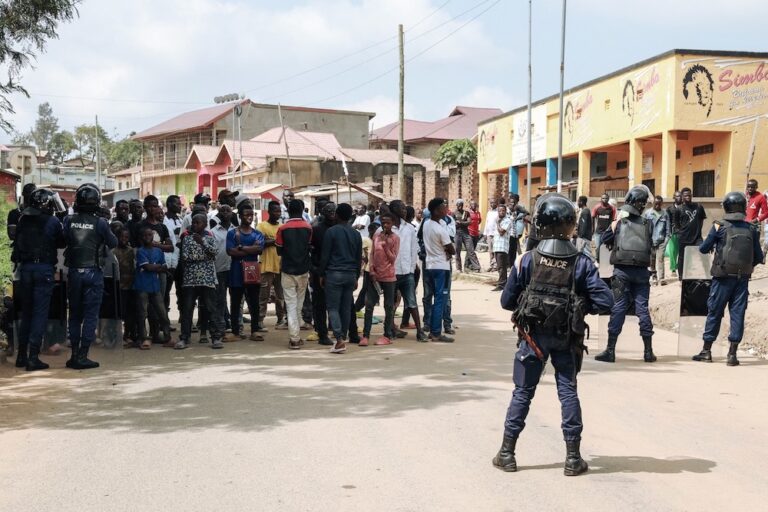(JED/IFEX) – JED expresses its profound indignation over the 20 May 2007 decision by the local section of the media regulatory agency (Haute Autorité des Médias, HAM) in Mbuji-Mayi to suspend for seven days all broadcasts by the privately-owned network, Radiotélévision Débout Kasaï (RTDK). JED believes this measure is not only disproportionate, but also clearly […]
(JED/IFEX) – JED expresses its profound indignation over the 20 May 2007 decision by the local section of the media regulatory agency (Haute Autorité des Médias, HAM) in Mbuji-Mayi to suspend for seven days all broadcasts by the privately-owned network, Radiotélévision Débout Kasaï (RTDK).
JED believes this measure is not only disproportionate, but also clearly dictated by provincial authorities who are using the media regulatory body to settle a personal dispute.
The HAM has officially accused RTDK of broadcasting two “defamatory” programmes on 15 and 16 May and of uttering threats against Ngoyi Kasanji, governor of East Kasai province.
When asked by JED about the nature of these threats, Faustin Mutombo Hanshi Hatupu, HAM’s provincial representative, admitted to not having heard the alleged threats himself, but justified the suspension on the basis of RTDK’s refusal to deliver audio and video tapes of the incriminating programmes to him.
According to other sources contacted by JED, during the programme “Espace ABC”, broadcast on 15 May 2006, Auguy Ilunga, RTDK’s owner, complained of being insulted by journalists from Radiotélévision Océan Pacifique (RTOP), which belongs to Governor Kasanji. In addition, during another call-in programme, “Vibration matinale”, on 16 May, a television viewer commenting on the shortage of clean drinking water in that part of the country criticised Kasanji for not fulfilling promises made during the last election campaign to provide the city of Mbuji-Mayi with water and electricity.
JED demands that the armed men currently occupying RTDK’s headquarters be immediately withdrawn and calls on Parliament to accelerate the process of establishing the new media regulatory agency (Conseil supérieur de l’audiovisuel et de la communication, CSAC).


